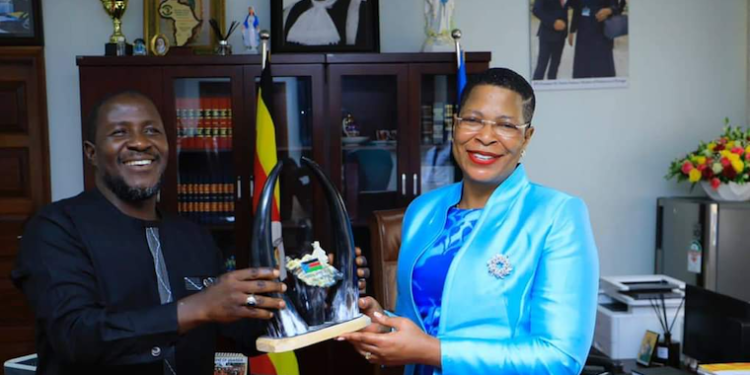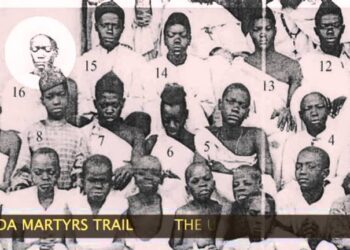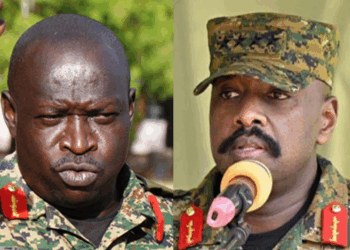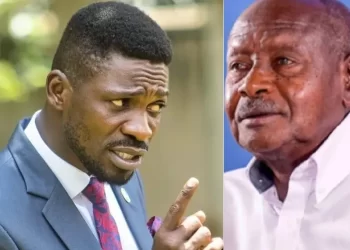By THE OBSERVER UG
Six months on since the anti-homosexuality law came into effect, the consequences of this law have had a significant impact on Uganda’s economy, access to healthcare, jurisprudence, NGO operations as well as the very members of parliament that passed it.
As GEOFREY SERUGO writes, several leading figures in the country remain defiant in spite of the growing alienation of Uganda by the West.
ALIENATION
On the wake of the passing of the law, the USA, several European countries as well as global institutions slammed the law and continue to campaign to highlight Uganda’s ‘increasingly deplorable human rights record.’
Several economists such as Julius Mukunda, the executive director of the Civil Society Budget Advocacy Group (CSBAG), also warned that it will affect the financing of Uganda’s budget, as approximately half of the national budget relies on debt financing.
“This law is going to have dire effects on the economy. Half of the national budget is financed through debt. Most of these concessional loans are from the European Union (EU) and the US. This law puts us on the spot whether we have a plan B to finance our national development plan agenda.”
Indeed, the World Bank Group was the first to act in August, 2023 when it halted new loans to Uganda. The USA-based lender paused all project financing to Uganda on grounds that the law discriminates sexual and gender minorities in its projects.
“Uganda’s Anti-Homosexuality Act fundamentally contradicts the World Bank Group’s values,” the lender said in a statement.
“We believe our vision to eradicate poverty on a livable planet can only succeed if it includes everyone irrespective of race, gender, or sexuality. This law undermines those efforts. Inclusion and non- discrimination sit at the heart of our work around the world.”
KCCA, which receives an average of Shs 100 billion per year from the World Bank, is already one of the affected entities.
PARLIAMENT DEFIANT
Just a week after the law came into effect, the USA and UK showed their might by revoking the visa of the speaker of parliament, Anita Among, through an email.
“The US government has revoked your current visa on information that came available after your last issuance. As of May 12, 2023, you don’t possess a valid visa to the US although you are welcome to apply again. You are encouraged to forward your passport to the US Embassy through the ministry of Foreign Affairs for necessary modifications to your visa,” read the email.
Then on December 4, the USA widened the net to include all the 348 MPs that voted to pass the bill in parliament. Antony Blinken, the US secretary of state, in a statement, said: “Today, I am announcing the expansion of the visa restriction policy to include current or former Ugandan officials or others who are believed to be responsible for, or complicit in, undermining the democratic process in Uganda or for policies or actions aimed at repressing members of marginalised or vulnerable populations. The groups include, but are not limited to, environmental activists, human rights defenders, journalists, LGBTQI+ persons, and civil society organisers. The immediate family members of such persons may also be subject to these restrictions.”
After that development by the USA, Asuman Basalirwa, the person behind the Anti-Homosexuality Act, stated that no sanction would weaken Uganda’s sovereignty while acknowledging that there has been pressure from the West on MPs. He also underlined the significance of uniting to defend African values and culture.
Meanwhile, Among did not waver, declaring that parliament does not regret enacting the legislation. “I don’t fear being barred from travelling overseas,” she declared.
The defiance is indicative of a larger national mood to protect cultural identity. The USA usually keeps the list of prohibited officials a secret until after they submit an application for a visa. But now that members of their close family were added, it reflects the deep concern of how the law is biting LGBTQI+ persons and NGOs.
NGOs CHOKING
Indeed, the law is having an adverse effect on the operations of some human rights NGOs. The law, which includes provisions for reporting and penalties related to promoting homosexuality, has created an atmosphere of fear and insecurity for organizations working with LGBTQ individuals.
According to an official from the NGO Bureau who preferred anonymity, about 30 NGOs have been inspected, with some receiving warnings regarding their association with LGBTQ people. For instance, six months on since the law came into effect, operations of the Uganda Harm Reduction Network (UHRN) have been hampered.
Before the enactment of the law, UHRN was a bustling hub supporting people who use and inject drugs, especially the youth. However, a recent visit found the place deserted, highlighting the impact of the new law.
Twaibu Wamala, the UHRN executive director, expressed concerns about constant surveillance and harassment against LGBTQ individuals using drugs since the law’s implementation.
“The law was intended to stigmatize and discredit NGOs that work for human rights and other important causes. It has eliminated important funding sources and is giving the ideal justification for fining and closing important organizations,” he said.
The law requires individuals and organizations to report those engaged in same-sex acts or supporting homosexuality, with severe penalties for entities found guilty of promoting homosexuality. The fear of exposure and legal consequences has created a climate of fear and mistrust, hindering LGBTQ individuals from seeking essential services, including counseling and psychosocial support.
Despite a directive from the ministry of Health to public hospitals to provide services without discrimination, the law contradicts Uganda’s obligations under various international human rights instruments. UHRN, along with local and international partners, has consistently reminded the government of these contradictions.
The law imposes exorbitant fines, up to Shs 1bn, for entities promoting homosexuality, contributing to a coercive and punitive environment. This has led to self-censorship and secrecy within the NGO world, making it challenging for LGBTQ individuals who use drugs to express their identities openly.
LEGAL CHALLENGE
Even before the law was passed, several human rights activists and lawyers had already warned they would challenge it. They petitioned the Constitutional court shortly after it was passed, calling for it to be overturned on grounds that it discriminates sexual minorities on top of trampling on several fundamental human rights.
The petitioners include MP Fox Odoi and Paul Bucyana Kiwizera, activists Frank Mugisha, Pepe Onziema, Jackline Kemigisa, Linda Mutesi, Kintu Nyago, Jane Nasiimbwa and Andrew Mwenda. Early this month, the Constitutional court began hearing the petition but due to the constant commotion in court, it was agreed by all sides to proceed with written submissions as opposed to oral submissions.
Last week, a panel of five judges led by deputy chief justice Richard Buteera received written submissions from both parties and informed them they would be notified when a ruling is ready. Amidst all this back-and-forth challenges, it remains to be seen how the fallout from the anti-homosexuality law will be settled.







Discussion about this post